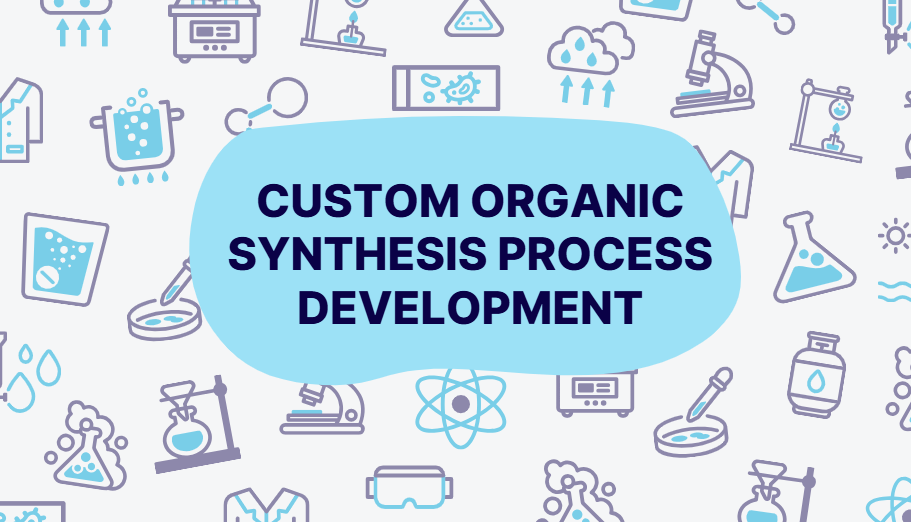Custom polymer synthesis is a cornerstone of material science, offering the ability to tailor polymer properties to meet specific industrial, biomedical, and environmental requirements. At the heart of this process is the optimization of reaction conditions, which ensures efficiency, scalability, and precision. This blog explores the key steps, techniques, and tools required to optimize reaction conditions for custom polymer synthesis.
1. Understanding Reaction Parameters
Optimizing polymer synthesis begins with understanding the key reaction parameters that influence polymerization:
a. Temperature
Temperature affects reaction kinetics and polymer properties. High temperatures may increase the reaction rate but can lead to undesirable side reactions or polymer degradation.
- Solution: Use a temperature-controlled reactor to maintain stability and prevent overheating.
b. Monomer-to-Initiator Ratio
The ratio determines molecular weight and polymer structure. An imbalance can result in incomplete polymerization or low-quality polymers.
- Solution: Conduct pre-reaction modeling to identify the ideal ratio.
c. Solvent Selection
The choice of solvent influences solubility, reaction rate, and polymer properties.
- Solution: Select solvents based on polarity, boiling point, and environmental considerations (e.g., water or green solvents).
2. Optimizing Catalyst Use
Catalysts play a crucial role in polymerization, impacting reaction speed and efficiency.
- Choosing the Right Catalyst: Match the catalyst to the type of polymerization (e.g., Ziegler–Natta catalysts for polypropylene, organocatalysts for precision polymerization).
- Catalyst Loading: Use the minimal effective amount to reduce costs and potential toxicity.
3. Reaction Kinetics and Time Management
Understanding the kinetics of polymerization is critical for achieving desired molecular weight and polymer properties.
- Reaction Time: Over-polymerization can lead to branching or gelation, while under-polymerization results in incomplete reactions.
- Real-Time Monitoring: Use analytical tools like FTIR or NMR to monitor reaction progress and adjust parameters dynamically.
4. Controlling Polymer Architecture
Custom polymers often require precise control over their architecture, including branching, cross-linking, and block configurations.
- Controlled Radical Polymerization (CRP): Techniques like RAFT or ATRP offer fine control over polymer chains.
- Molecular Weight Distribution: Maintain uniform chain length by fine-tuning reaction conditions.
5. Automation and AI in Optimization
Advances in technology, including automation and artificial intelligence (AI), are revolutionizing polymer synthesis.
- Predictive Algorithms: AI can simulate polymerization outcomes based on initial conditions, reducing trial-and-error experimentation.
- Automated Reactors: Robotic systems can adjust temperature, pressure, and reagent addition in real time for optimal results.
6. Ensuring Scalability
For industrial applications, it is crucial to scale reactions without compromising quality.
- Pilot-Scale Testing: Transition from laboratory to pilot scale before full-scale production to identify potential issues.
- Batch vs. Continuous Processes: Evaluate whether a batch process or a continuous-flow system better suits the desired polymer properties.
7. Environmental and Safety Considerations
Modern polymer synthesis must balance performance with environmental and safety concerns.
- Green Chemistry Principles: Prioritize non-toxic reagents and processes with minimal waste.
- Safety Protocols: Monitor exothermic reactions and handle volatile chemicals with care.
8. Analytical Tools for Optimization
Analytical techniques are indispensable for evaluating reaction conditions:
- Gel Permeation Chromatography (GPC): Determines molecular weight distribution.
- Differential Scanning Calorimetry (DSC): Evaluates thermal properties.
- Dynamic Light Scattering (DLS): Measures particle size in colloidal systems.
Conclusion
Optimizing reaction conditions in custom polymer synthesis is a multi-faceted process that requires a deep understanding of chemistry, advanced tools, and innovative technologies. By systematically adjusting parameters and leveraging modern analytical and computational techniques, it is possible to produce high-quality, application-specific polymers with consistency and efficiency.
Services Offered by ResolveMass Laboratories Inc.
At ResolveMass Laboratories, we specialize in providing comprehensive polymer synthesis and analysis solutions, including:
- Custom Polymer Synthesis: Tailored solutions for biomedical, industrial, and environmental applications.
- Reaction Condition Optimization: Expertise in fine-tuning reaction parameters for scalability and precision.
- Advanced Polymer Characterization: Using state-of-the-art analytical tools like GPC, DSC, and NMR.
Explore our Custom Polymer Synthesis Services for more details.
Contact Us
Partner with us to optimize your custom polymer synthesis projects. Our team of experts is ready to collaborate on innovative solutions tailored to your needs.
Visit our Contact Us page to get started.
Discover more services:

